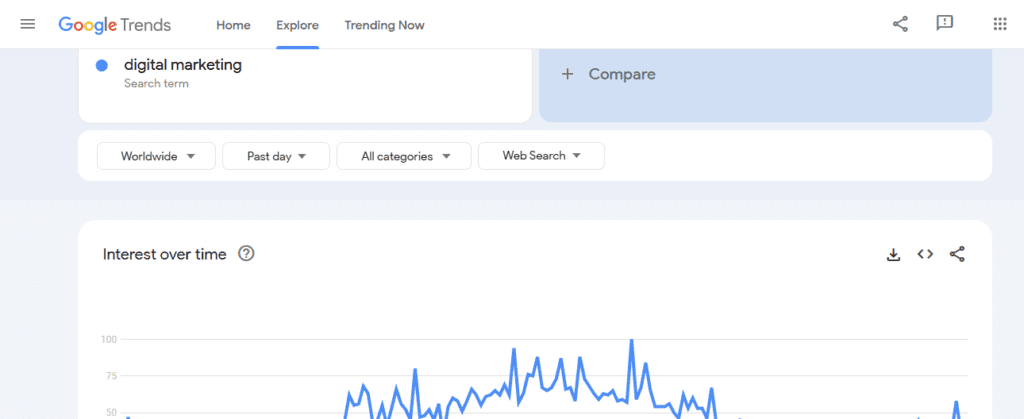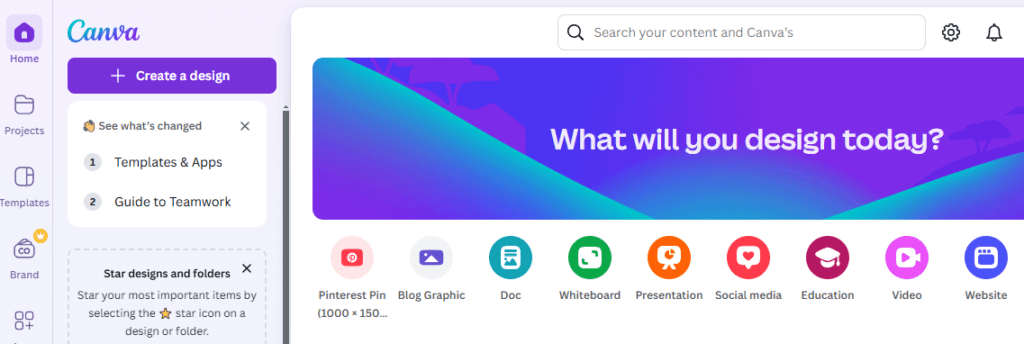
You own a small business. You know online marketing is essential for growing your sales, but let’s face it—it can feel overwhelming to know where to start.
We’ve all been there. But here’s the good news: there are powerful marketing tools designed specifically for small businesses like yours that can help turn that “one day” task into an actionable reality.
The right tools don’t just simplify tasks—they help you streamline your entire marketing strategy. From planning campaigns and executing them to analyzing the results, these tools can be your business’s secret weapon for achieving real growth.
What you do need is a smart toolkit that works as hard as you do. The right digital marketing tools allow you to work efficiently, save time, and achieve your goals without feeling stretched thin.
Types of Digital Marketing and How Tools Can Help
Picking the right marketing tools for your business is easier when you understand how they align with your goals. Let’s start with a quick breakdown of the main types of digital marketing, how they benefit your small business, and how tools can help.
1. Social Media Marketing
Instagram, YouTube, Facebook, Twitter, TikTok, LinkedIn… sound familiar? Social media is a powerful way for your business to connect with customers, increase visibility, and grow your audience. While some brands strike gold with viral posts, most small businesses grow by consistently sharing valuable content.
🛠 How Tools Help Your Business with Social Media Marketing:
- Schedule posts in advance across multiple platforms to stay consistent.
- Organize and manage your content creation process from start to finish.
- Automate posting, saving you hours every week.
- Analyze post performance and gain insights to improve.
- Streamline engagement by managing comments and replies in one place.
Businesses that post consistently on social media see a 27% higher engagement rate compared to those that post sporadically.
2. Email Marketing
Email marketing boasts an incredible ROI of 3,500%, making it one of the most cost-effective ways to market your business. Emails let you build personal relationships with customers, sharing promotions, updates, and exclusive content directly in their inbox.
🛠 How Tools Help Your Business with Email Marketing:
- Design professional, eye-catching newsletters with ease.
- Send automated email sequences based on customer actions—like a “thank you” email after a purchase.
- Grow your email list with customizable signup forms and pop-ups.
- Segment your audience for tailored campaigns that convert.
- Personalize every email to make customers feel valued.
Email marketing drives 40 times more customer acquisition than social media, making it a must-have for your business.
3. SMS Marketing
If you think SMS is outdated, think again. With an open rate of 98%, SMS marketing is one of the most effective ways to connect with your customers. Whether you’re sending reminders, promo codes, or quick updates, this channel is perfect for building trust and driving sales.
🛠 How Tools Help Your Business with SMS Marketing:
- Automate your SMS campaigns, saving time and ensuring consistency.
- Send mass messages to your audience without hassle.
- Grow your contact list with signup forms integrated into your website.
- Personalize texts to make each message feel one-on-one.
- Share links, promo codes, and offers directly with customers.
SMS marketing boasts a 98% open rate, making it an excellent complement to your existing strategies.
4. Content Marketing
You’re reading this blog because it’s (hopefully) helping you make informed decisions about digital marketing tools. That’s content marketing in action!
Content marketing is all about creating value for your audience—whether that’s through blogs, videos, guides, or infographics. It helps your business establish trust, attract new customers, and grow your online presence over time.
🛠 How Tools Help Your Business with Content Marketing:
- Plan and refine your content strategy to align with your goals.
- Discover fresh ideas for blog posts, videos, and other content types.
- Optimize your content for SEO, making it easier for potential customers to find you.
- Design eye-catching visuals to complement your content.
- Collaborate with your team seamlessly, even if you’re remote.
- Manage deadlines and streamline project workflows.
Businesses with a content marketing strategy generate 3 times more leads than those without one.
5. Online Advertising
When you need fast results, online advertising is your go-to. Platforms like Google Ads, Facebook Ads, and Instagram offer powerful targeting options to ensure your business reaches the right audience.
🛠 How Tools Help Your Business with Online Advertising:
- Monitor and analyze ad performance to ensure you’re getting the most for your money.
- Optimize ad campaigns based on real-time insights.
- Discover trends and ideas for new ad campaigns.
- Design professional, scroll-stopping ad graphics and copy.
- Find and connect with experts to manage complex campaigns.
Businesses that use online advertising see 2.5x faster growth rates compared to those that rely solely on organic marketing.
The 10 Small Business Marketing Tools You Should Try Out
Whether you’re a new entrepreneur or a seasoned small business owner, these 11 digital tools will help grow your business—each in a different marketing area. These tools were handpicked as best-in-class because they’re easy to learn, impactful, and friendly-priced (or even free).
1. Google Trends: Spot Emerging Topics
Google Trends shows what people are searching for, as well as historical search volumes for any topic. With this market research, keyword research, and SEO tool, you can filter by geographical location and language to get relevant results, which helps with search engine optimization and content planning.
Pros:
- Real-time metrics on Google search trends worldwide
- Powerful for creating relevant content
- Easy to adjust time frames and create reports
Cons:
- Limited data
- Mostly numbers without context
- Not great for low-searched keyword terms
2. SparkToro: Unlock Audience Insights
SparkToro helps you understand where your target audience spends time online, what they talk about, and which influencers they follow. It’s great for guiding marketing strategy, planning content topics, and influencer outreach.
Pros:
- Intuitive and straightforward UX
- Detailed data on audience behavior
- Easily identify the best marketing channels and influencers
Cons:
- Not as reliable for non-English-speaking audiences
- Plans start at $37.50 a month
3. Canva: Design Like a Pro with an Easy Visual Tool
Canva allows anyone to design professional-looking graphics with its extensive library of templates and in-built elements. Create social media posts, logos, posters, and more—even without prior design experience.
Pros:
- Extensive design library and templates
- Easy-to-use AI features like background removal
- Collaborative team capabilities
Cons:
- Limited options compared to Adobe Photoshop
- Many features are behind a paywall
- Designs may lack uniqueness
4. Buffer: Streamline Social Media Scheduling
Buffer simplifies managing social media accounts by letting you schedule posts, shorten links, analyze performance, and generate AI-driven social posts.
Pros:
- Manage multiple social accounts
- Detailed post analytics
- Easy-to-use scheduling tools
Cons:
- Limited features in the free version
- Some post formats not supported
5. MailerLite: Simplify Email Marketing and Grow Your List
MailerLite offers tools for email campaigns, automation, landing pages, and e-commerce integrations. Ideal for small businesses in all growth phases.
Pros:
- Free plan for up to 1,000 subscribers
- Intuitive interface and advanced features
- Discounts for nonprofits
Cons:
- Thorough approval process
- Limited support in the free plan
6. Oppizi: Effortlessly Distribute Flyers and Boost Visibility
Oppizi enables the creation of flyer campaigns that can be tracked, optimized, and scaled using geo-targeting and location data.
Pros:
- Detailed tracking and reports
- Geo-targeting for specific areas
Cons:
- Limited to physical distribution
- Costs vary by distribution area
7. HubSpot CRM: Build Stronger Customer Connections
HubSpot CRM provides a visual dashboard to manage the entire sales pipeline, from tracking leads to rolling out marketing strategies.
Pros:
- Comprehensive free plan
- Customizable and scalable
- Powerful yet user-friendly interface
Cons:
- Paid plans can get expensive
- Free plan lacks customer support
8. SlickText: Reach Your Audience Instantly with SMS
SlickText helps build relationships through personalized text messages, including surveys, contests, and reward programs.
Pros:
- Easy to use, even for beginners
- Many integrations with other tools
Cons:
- Free trial only lasts 14 days
- Paid plans quickly add up
9. Trello: Stay Organized Using a Task Manager
Trello’s boards, lists, and cards help organize tasks and projects, providing clear visibility into team or individual workflows.
Pros:
- Intuitive interface
- Real-time team collaboration
- Integration with other tools
Cons:
- Limited features for complex projects
10. Google Workspace: Collaborate Smarter, Work Better
Google Workspace includes essential tools like Sheets, Docs, and Slides, enabling real-time collaboration and file sharing.
Pros:
- Accessible from anywhere
- All-in-one solution for startups
Cons:
- Free trial lasts only 14 days
- Requires internet for full functionality
Choosing the Right Tools for Your Business
To make the most of your investment, ask these key questions:
- Does this tool solve your specific business challenges?
- Can it grow alongside your business?
- Are updates and features added regularly?
- Is it easy to use, or are training resources available?
- Does it integrate seamlessly with your current systems?
- How does it perform in terms of speed, security, and reliability?
- Is there a free trial to test it before committing?
- Does the price fit your budget, and are discounts available for long-term use?
By carefully choosing the tools that align with your goals, you’ll empower your business to supercharge its marketing efforts—without the stress.











